BECAUSE HEALTH WORKERS SAVE LIVES
Meet six health workers who are helping us improve health and well-being around the globe.
“Oftentimes clients drop out of HIV treatment for fear of stigma and discrimination. Because of this I introduce myself to them as a friend, not as a hospital employee.”
—Pascacio Colop, community liaison to the comprehensive care unit in the Western National Hospital, Quetzaltenango, Guatemala
IntraHealth works with Pascacio’s hospital to help people who live with HIV—even those in remote, isolated communities—get the care they need.
“I like my job. I always wanted to be a nurse. When I treat you and you get well, I feel good.”
—Jane Atim, midwife and nurse in charge at Nadunget Health Center III, Karamoja region, Uganda
Midwives and in-charges like Jane are critical to improving the quality and availability of health care in their communities.
That’s why we work with Uganda’s ministries to revise national service delivery standards and supervision guidelines and support the country’s 112 district health management teams.
“The most important thing for treating obstetric fistula is human resources—the surgeons, the people who clean the rooms, nurses, urologists—all of them are important.
“This is why IntraHealth’s approach is the best, because it is based on local human resources. You could have brought Americans here to do this, but you said ‘No—we’re going to help you develop your own human resources and introduce training for fistula surgery.’
“So now you’re not only taking care of fistula patients, you’re improving the overall quality of care in Mali. Outside of IntraHealth, no other NGO has done that.”
—Dr. Kalilou Outtara, surgeon and master trainer, Kayes, Mali
“It’s good to be amongst your own people, saving your own people. You know their difficulties. You know what they are striving for.”
—Shirley Mwellie, nurse, Omuthiya District Hospital, Namibia
It takes creativity to build a fit-for-purpose health workforce amid health worker shortages. That’s why we teamed up with Namibia’s Ministry of Health and Social Services to recruit much-needed HIV nurses from an unlikely but eager candidate pool: retirees.
As IntraHealth works with Namibia and other countries to increase the number of homegrown health workers around the world, experienced nurses like Shirley are crucial.
“This mobile was once like a wonder to me, but now it is my strength.”
—Rachna, accredited social health activist, Jhansi, India
Rachna had never seen a smartphone before she went through a three-day training on mSakhi, a mobile app IntraHealth developed for community health workers in India.
Today she uses the app to register pregnant women and newborns, track their health services, and upload their records and data in real-time through the Internet. She also uses mSakhi to counsel pregnant women and mothers and encourage healthy behaviors in some of India’s remotest communities.
“One day I asked myself: ‘What can I do to help my peers?’ Then, amazingly, the youth ambassador opportunity turned up.
“I’ve learned so much about how associations in my country work, and about leadership. I believe that in the future this experience will make me an indispensable person to my community, to Africa, and to the whole world, because I’m devoted to the family planning cause and the happiness of others.”
–Romaric Ouitona, an IntraHealth-sponsored family planning youth ambassador and president of Youth Ambassadors in Benin
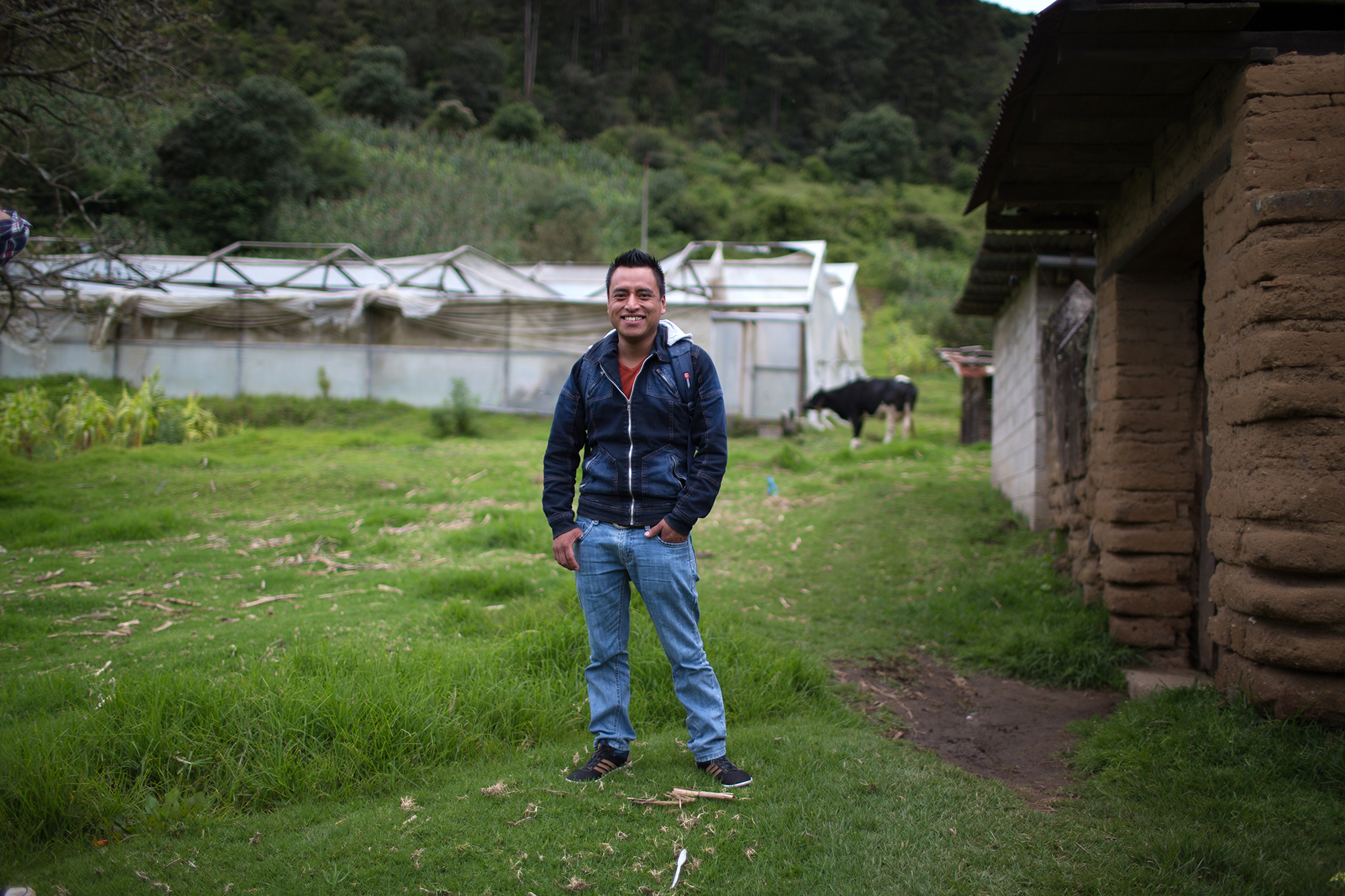
“Oftentimes clients drop out of HIV treatment for fear of stigma and discrimination. Because of this I introduce myself to them as a friend, not as a hospital employee.”
—Pascacio Colop, community liaison to the comprehensive care unit in the Western National Hospital, Quetzaltenango, Guatemala
IntraHealth works with Pascacio’s hospital to help people who live with HIV—even those in remote, isolated communities—get the care they need.
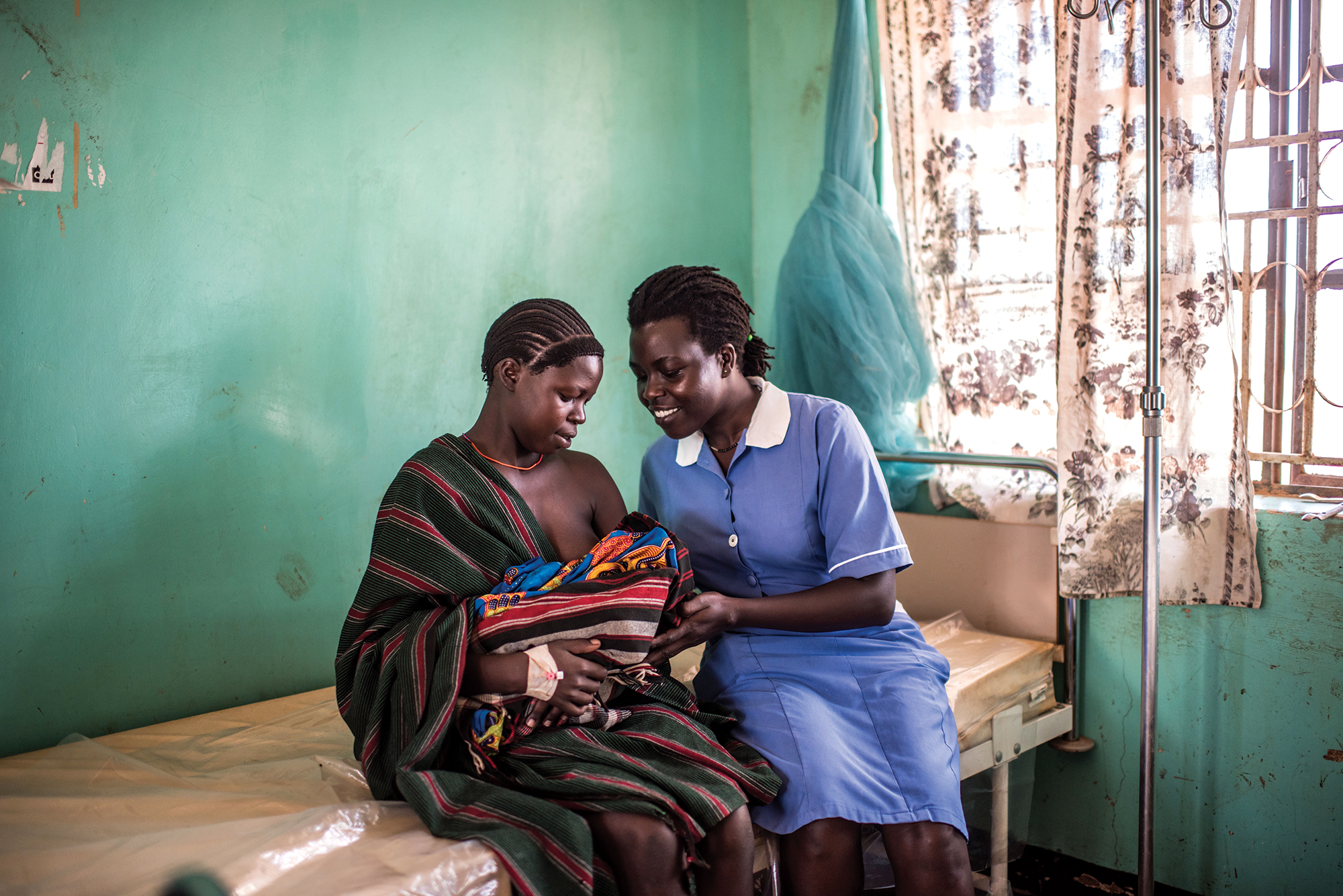
“I like my job. I always wanted to be a nurse. When I treat you and you get well, I feel good.”
—Jane Atim, midwife and nurse in charge at Nadunget Health Center III, Karamoja region, Uganda
Midwives and in-charges like Jane are critical to improving the quality and availability of health care in their communities.
That’s why we work with Uganda’s ministries to revise national service delivery standards and supervision guidelines and support the country’s 112 district health management teams.
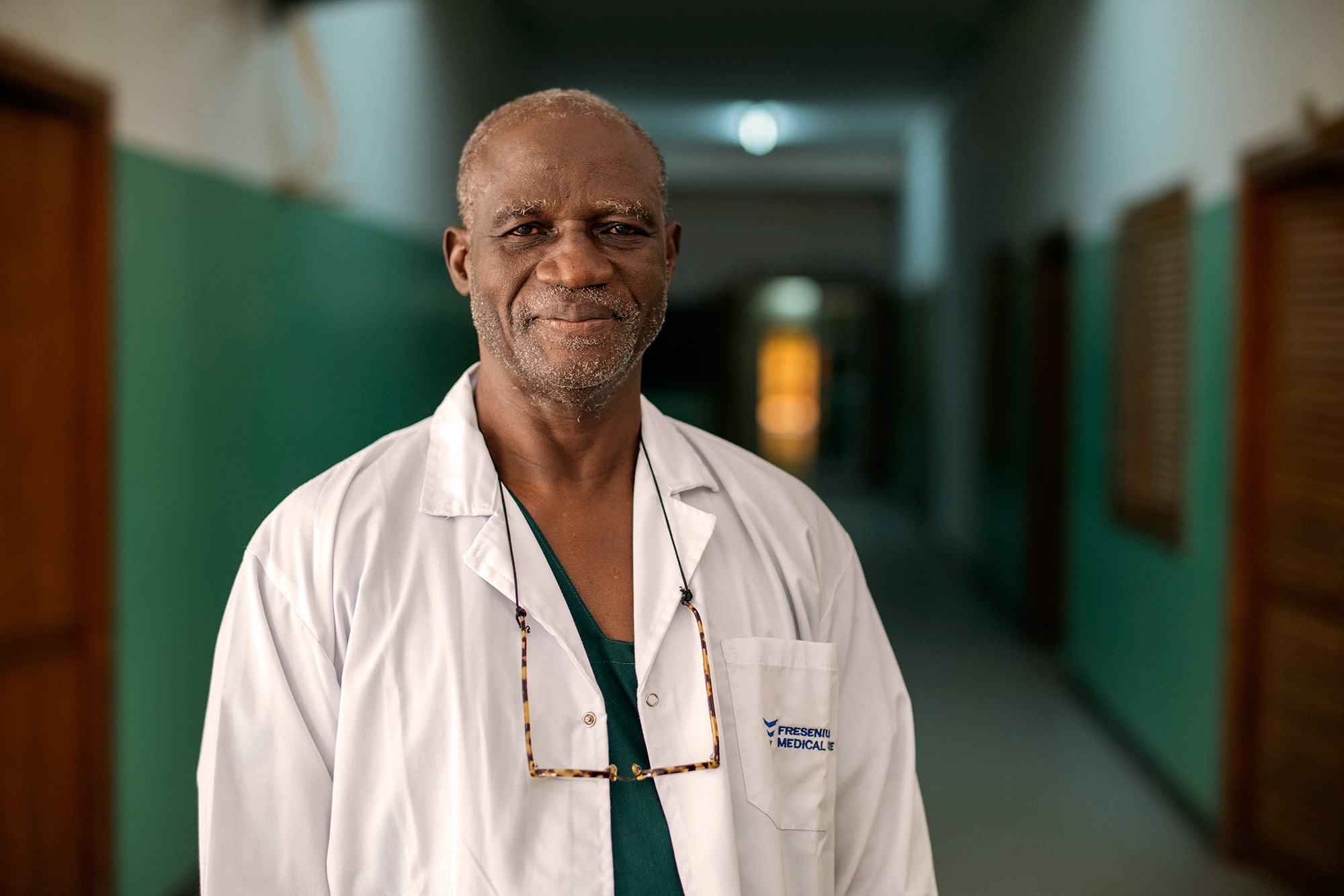
“The most important thing for treating obstetric fistula is human resources—the surgeons, the people who clean the rooms, nurses, urologists—all of them are important.
“This is why IntraHealth’s approach is the best, because it is based on local human resources. You could have brought Americans here to do this, but you said ‘No—we’re going to help you develop your own human resources and introduce training for fistula surgery.’
“So now you’re not only taking care of fistula patients, you’re improving the overall quality of care in Mali. Outside of IntraHealth, no other NGO has done that.”
—Dr. Kalilou Outtara, surgeon and master trainer, Kayes, Mali
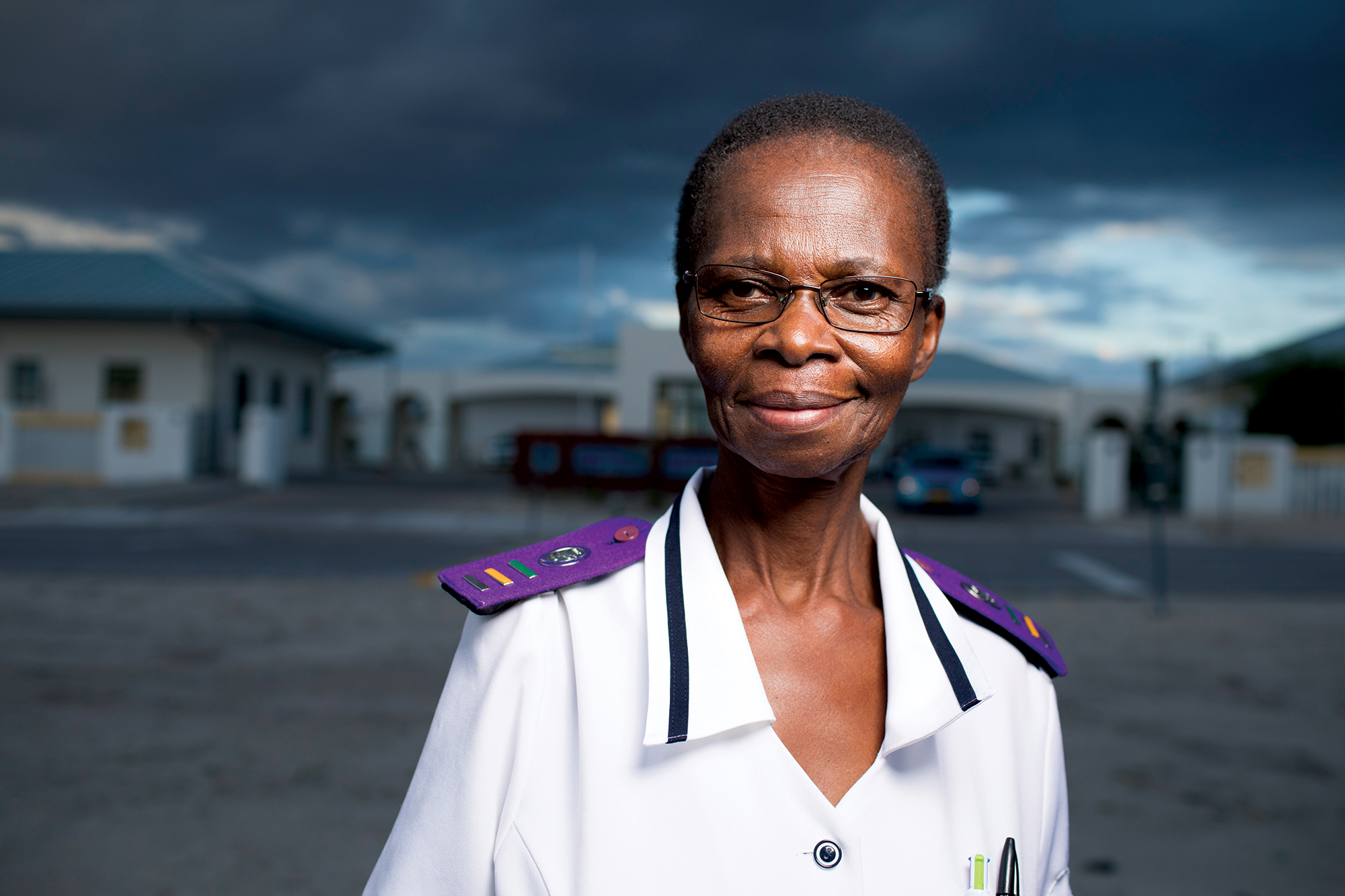
“It’s good to be amongst your own people, saving your own people. You know their difficulties. You know what they are striving for.”
—Shirley Mwellie, nurse, Omuthiya District Hospital, Namibia
It takes creativity to build a fit-for-purpose health workforce amid health worker shortages. That’s why we teamed up with Namibia’s Ministry of Health and Social Services to recruit much-needed HIV nurses from an unlikely but eager candidate pool: retirees.
As IntraHealth works with Namibia and other countries to increase the number of homegrown health workers around the world, experienced nurses like Shirley are crucial.
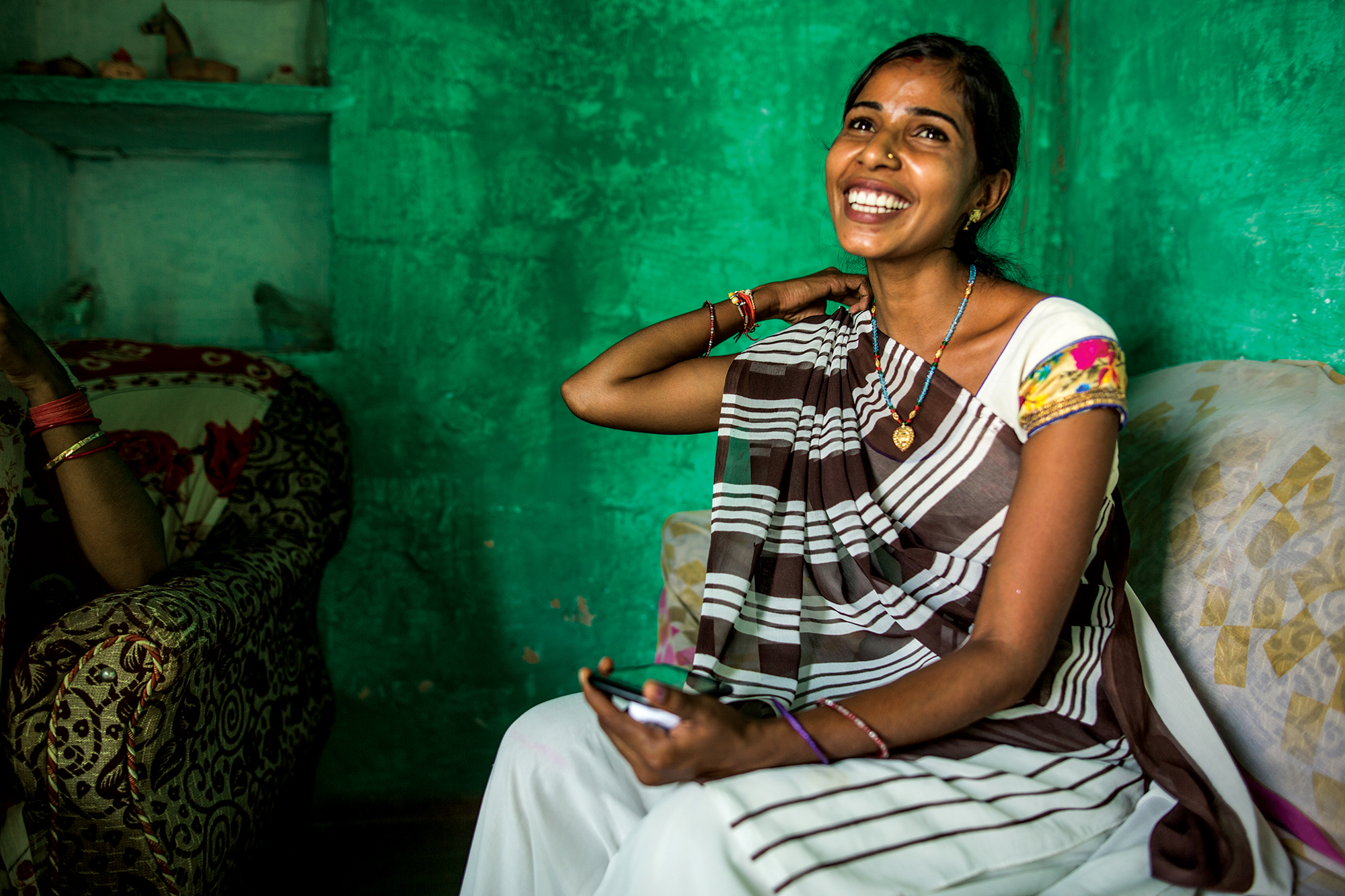
“This mobile was once like a wonder to me, but now it is my strength.”
—Rachna, accredited social health activist, Jhansi, India
Rachna had never seen a smartphone before she went through a three-day training on mSakhi, a mobile app IntraHealth developed for community health workers in India.
Today she uses the app to register pregnant women and newborns, track their health services, and upload their records and data in real-time through the Internet. She also uses mSakhi to counsel pregnant women and mothers and encourage healthy behaviors in some of India’s remotest communities.
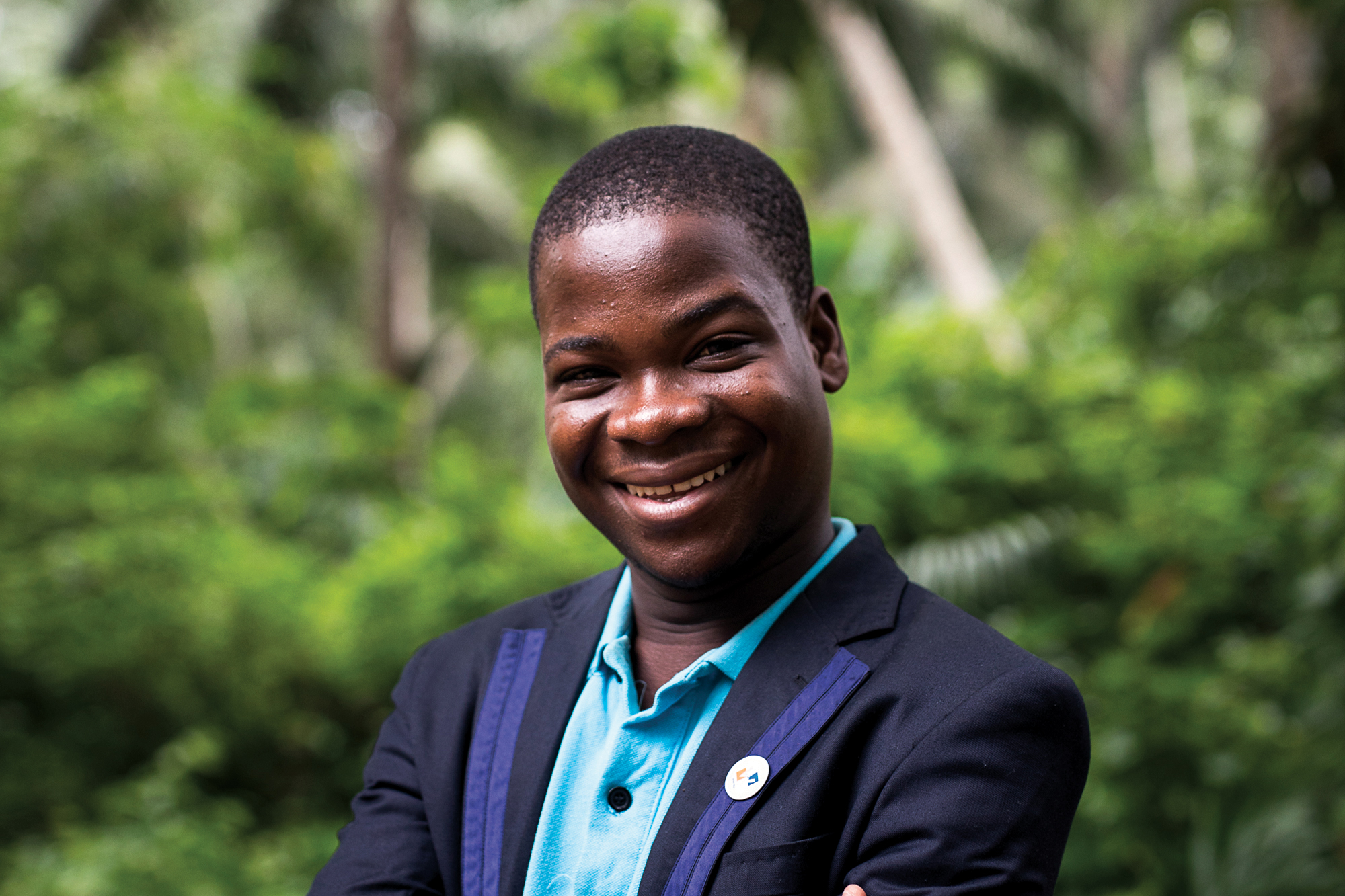
“One day I asked myself: ‘What can I do to help my peers?’ Then, amazingly, the youth ambassador opportunity turned up.
“I’ve learned so much about how associations in my country work, and about leadership. I believe that in the future this experience will make me an indispensable person to my community, to Africa, and to the whole world, because I’m devoted to the family planning cause and the happiness of others.”
–Romaric Ouitona, an IntraHealth-sponsored family planning youth ambassador and president of Youth Ambassadors in Benin
Read more stories about health workers on VITAL, the blog of IntraHealth International

